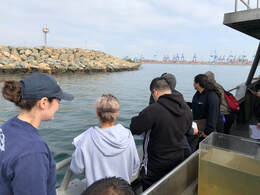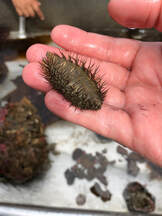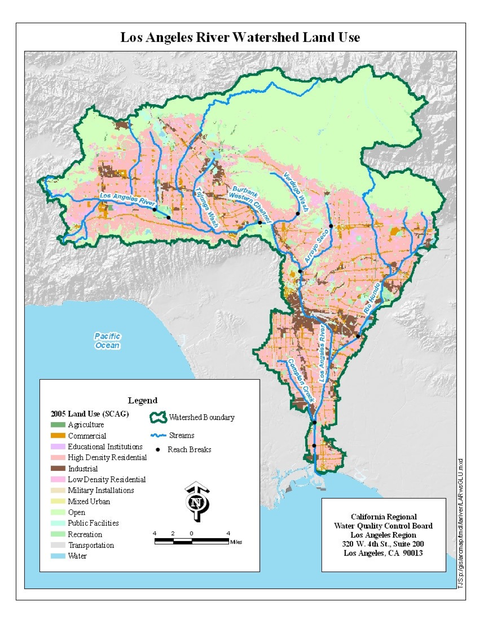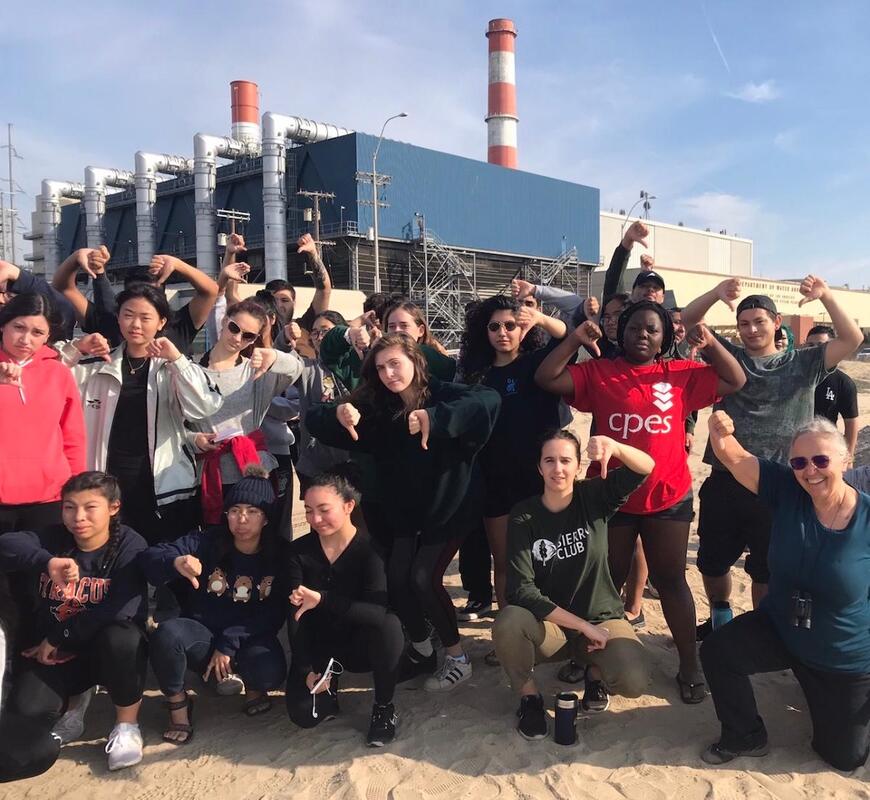|
News Briefs
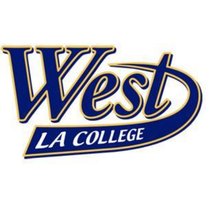
West LA College Offers Nation's First AA Degree in Climate and Environmental Studies
West Los Angeles Collee has just launched an AA degree program in Climate and Environmental Studies. While other community colleges, such as SMCC and De Anza, offer degrees in sustainability, this is the first in the nation to focus on climate change. The interdisciplinary major will include core courses in global climate change, environmental ethics, and statistics, and students will be able to select from a variety of electives, ranging from chemistry and geology to the economics of globalization and American social problems. Just approved by the state this spring, the degree is designed both for those who plan to transfer to four-year institutions and those who want to add value to their current careers. With a BA in the field, students will be able to work as sustainability consultants, environmental scientists, green building/construction professionals, air and water quality specialists, renewable energy technicians, and science educators, among other possibilities. There are currently just eleven people signed up, but that number is expected to grow this fall. The program is under the direction of Assistant Professor Jennifer Cole, who has been at WLAC just since 2017. She credits the support of college president, Dr. James Limbaugh, for the quick development of the degree. Limbaugh told the Community College Daily that he’s been “concerned about climate change for the last couple of decades…I realized I have a moral responsibility to help students from urban areas like Los Angeles become aware of climate issues. Students need to understand that climate change is the biggest single problem we are facing globally.” Valley EcoAdvocates Working through the Summer
Students in the San Fernando Valley including LAVC's EcoAdvocates protest the LADWP gas fired power plant in Sun Valley. The Valley Sierra Club helped organize the protest.
Eco Advocates, the Valley College environmental group, has been very busy this past year and through the summer. The ten-year-old club has been revitalized under the leadership of Eddie Kaufman-Morrow and Anahí Rizo, working closely with the Sierra Club’s Katya English. They have organized events ranging from Arbor Day (where they planted trees in honor of Armenians killed in the genocide) to a recent campus cleanup. EcoAdvocates also worked with the Valley Facilities Department to get refillable drinking water bottle stations installed in some buildings as a way to reduce the large quantity of plastic thrown into the waste on campus.
Off campus, EcoAdvocates has been active in the Valley, especially in joining the fight against the Dept. of Water and Power’s renewal of its gas-fired plant in Sun Valley. This is one of four such plants the DWP currently operates. The giant utility recently announced that three will be closed in the next few years, but that the Sun Valley plant will remain open. This has met with considerable opposition from elected officials and neighborhood councils in the Valley. Students in the club have also helped the Santa Monica Mountains Conservancy as it works to revitalize the tributaries of the Upper Los Angeles River system (see related article). EcoAdvocates is one of the longest-running student clubs at Valley College. They meet once a week during the school year and have an ambitious agenda for the fall, with a major recruitment drive planned . Recently they launched their first online newsletter, so we can all follow them. 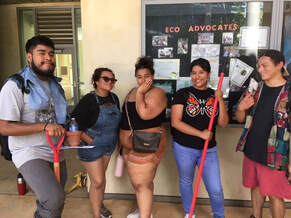
Students pulled weeds in the Allied Health & Sciences garden area adjacent to the classroom building. With Gerardo Ceja, (left) and Jess Callejas, Savannah Gerson, Maricela and Eddie Kaufan-Murrow (right).
|

